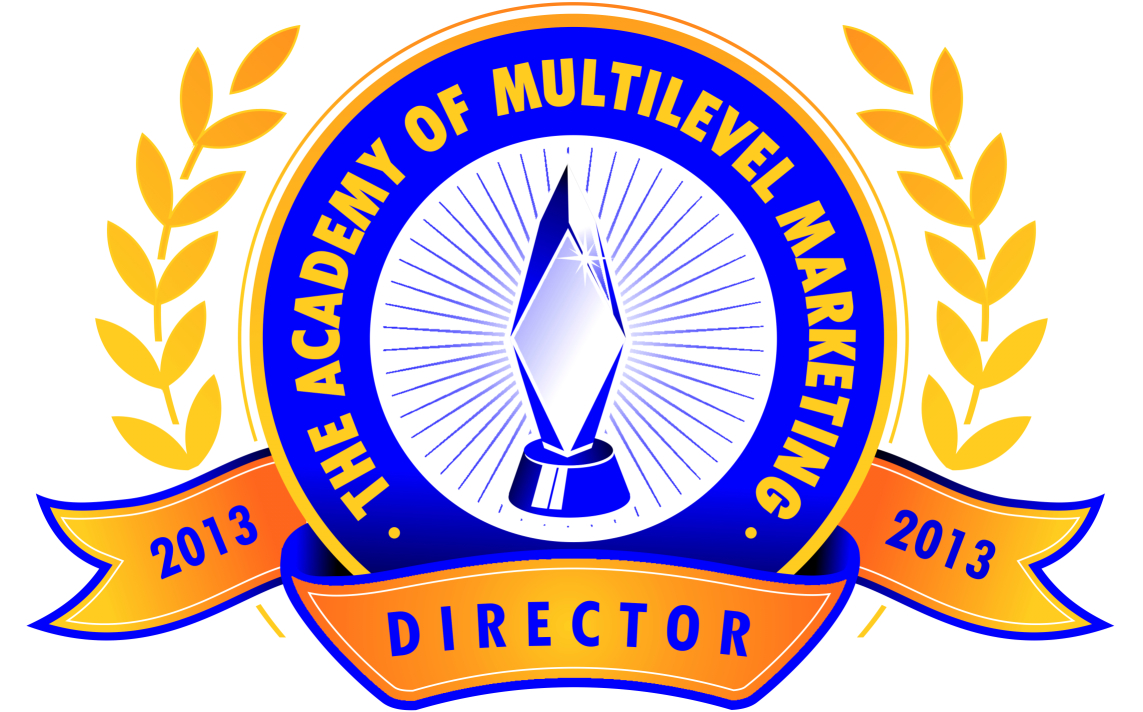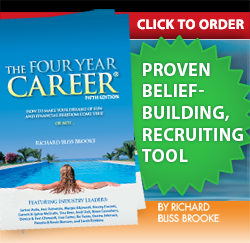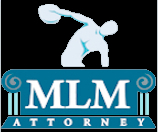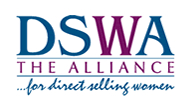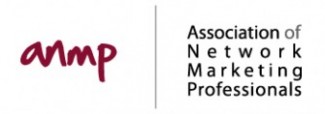It’s a Dirty Job, But Somebody’s Gotta’ Do It
By Len Clements © 2014
I’m not a big fan of the FDA. Let’s make that clear right up front. I do respect their overall intentions, and believe they have done a lot of rarely recognized good. But there are some dark spots on the FDA X-Ray, to be sure. I am, however, a fan of reason and fairness – two traits that seem to be sorely lacking in the otherwise legitimate criticism of this federal agency. Specifically, the argument that the FDA is somehow censoring the ability of dietary supplement marketers to present truthful and accurate disease treatment claims, and that this is somehow a conspiracy to benefit the drug companies. The same drug companies that, allegedly, have the FDA in their hip pocket. It’s certainly fashionable to buy into such assertions at face value, and scandalous in itself to dare defend the FDA (to what degree that is true, I’m sure I’m about to discover). But dare we to actually apply some common sense and logic, that is, to really think about the issue rather than take the safe, easy, “government bad”, “drug company greedy” position, we may just come to a different conclusion.
Most Baby Boomers will likely recall back in the 1960s, 70s, and arguably 80s, when such companies as Johnson & Johnson, Bayer, and Bristol-Myers were all members of the greatly admired and respected “Pharmaceutical Industry” that was working to improve our quality of life, and even save it. Curiously, and not coincidentally, when us boomers started to turn 40, and nutritional supplement sales began to skyrocket, Merck and Pfizer were now big, bad “drug” companies trying to squash legitimate health claims attributed to natural substances they couldn’t patent. Many of which were substances that had been on Earth for millions of years, but only after boomers turned 40 did they suddenly possess miraculous health and “anti-aging” benefits.
We keep hearing that the drug companies are somehow in cahoots with the FDA. I’ve certainly seen some circumstantial evidence of this, such as their railroading and subsequent banning of Ephedra (certain ephedrine alkaloids, actually) that they pulled off a few years ago. This was in spite of its proven efficacy, and the absence of any evidence proving a cause and effect between the adverse effects reported and the usage of Ephedra products.[1] But this is an example of a supposedly harmful supplement being taken off the market, and one could fairly argue it’s better to be safe than sorry. However, when it comes to the FDA’s heavy handed approach to our health benefit claims, I really don’t think they’re out of line.
First of all, the FDA actually makes the lives of pharmaceutical companies quite miserable. If Merck or Pfizer want to make a disease treatment or prevention claim – the identical types of claims dietary supplement marketers (and many MLM reps) want to be allowed to make, and so many are making – the FDA demands that they spend tens-of-millions of dollars and 5-10 years going through three phases of testing. Phase one involves in-vitro (i.e. in a Petri dish or test tube) and animal testing. Phase two is where limited human testing is performed, and phase three typically involves several studies on thousands of people. And these studies utilize a “placebo”, an inert substance like a sugar pill or dummy device that actually does nothing, and are “double-blinded”, where neither the patient nor the physician are aware of which is which. What’s more, all of this study and analysis is done to just prove the efficacy of one medical claim. If the company claims their drug treats both osteoporosis and arthritis they have to go through all of this twice. This is all done to not just prove the drug works, but also, and equally, to prove it is not harmful. And yet, in spite of all this extensive testing, some drugs still end up harming people (like Vioxx).
So, if the FDA is going to demand that the big pharmaceutical companies have to spend a decade and millions of dollars proving a single medical benefit claim, why should the dietary supplement industry be allowed to make several medicinal claims about a single product based on only personal testimonials and a few articles published in PubMed? We plead “freedom of speech” and “it’s our first amendment right” yet we are loath to allow the drug companies those same freedoms and rights. Consider that dietary supplement marketers often point to in-vitro or animal studies as the rationale for the rightful ability to make medicinal claims. So then, by the time a new drug has passed only the first phase of FDA mandated clinical trials they already have as much, if not significantly more “scientific substantiation” to back up their claim than dietary supplement marketers do about the vast majority of their products. Furthermore, a personal testimonial is essentially a non-placebo, non-blinded, non-medically supervised, non-controlled in any way, clinical trial involving one person. The “placebo effect”, where a patient reacts positively to even the fake pill or device, is powerful and common and must be eliminated as a possible reason for the positive effect. I followed two drugs through all phases of FDA mandated testing and both achieved a better than 50% remission rate, yet both failed phase three testing and were not granted new drug approval. [2] Why? Because the placebo group had about the same remission rate! And these were not diseases where people subjectively rated their pain or mood. These were physiological conditions that improved by introducing nothing more than the idea the subject was being treated. So by the time a drug company has successfully completed even phase two clinical trials they usually have far more scientific evidence that their substance works, and is safe, than any dietary supplement ingredient. So again, why doesn’t Merck and Pfizer have the same “freedom of speech” at that point to sell their product to the public by making a disease treatment claim? Oh, but if the drug companies were to ever try and get such a medication on the market, with only this limited amount of testing, we’d all scream bloody murder. Right?
If you’re going to make disease treatment claims you also have to prove (again, requiring years of double blind, placebo controlled studies on thousands of people) that your product is also safe. Note in many of the FDA’s Warning Letters to dietary supplement marketers they say their product is “not generally regarded as safe” (i.e. not on the GRAS list). That doesn’t mean it isn’t safe, it just means they haven’t went through all the hoops to prove it is. Obviously in some cases, such as the various exotic fruit juices that now pervade the MLM market, it would just be a formality – just as it was for many pharmaceuticals. But, the FDA demands that they still have to go through such a formality.
Yes, there are many common substances that obviously have disease treatment or prevention benefits, and we know they do from literally hundreds of years of observation. For example, we’ve known since the 15th century that citrus fruits, or more specifically citric acid, prevents and cures scurvy. We also know by now that Oranges and Lemons are probably safe to consume. And please don’t respond with the “but their drugs are synthetic, our supplements are natural” argument. Arsenic and mercury are “natural” and virtually every drug ever produced can be traced back to a “natural” source (i.e. penicillin and fungus, Codeine and the Opium Poppy, Aspirin and White Willow Bark, etc.). So, do you want Merck and Pfizer to keep to the same “proof” regimen currently required by the FDA? If so, then why shouldn’t dietary supplement marketers have to as well?
And in the case of the most obviously effective and safe substances that do have some scientific substantiation, although far less than required of drug companies, the FDA does, in fact, allow for the makers or marketers of such substances to petition for the right to make “Qualified Health Claims Subject to Enforcement Discretion”.[3] That’s why we can make such claims related to green tea and selenium and certain forms of cancer, tomatoes and/or tomato sauce and prostate cancer, omega-3 fatty acids & coronary heart disease, chromium picolinate & diabetes, calcium and hypertension (high blood pressure), and several more. So, if you have a natural, non-patentable substance and you want the freedom to make medicinal claims about it, you don’t need to change the law. There is already the facility for supplement companies to accomplish this which does, indeed, require substantially less clinical testing than is demanded of drug companies.
However, if you definitively claim your essential oil will prevent or treat Ebola, or your glucosamine supplement will cure arthritis, sans FDA permission to make a Qualified Health Claim, you are begging for an FDA penned Warning Letter. And righyfully so.
If anyone, whether it be an MLM distributor or company, a chiropractor, a naturopath, an herbalist, or a pharmaceutical company, wants to make a claim that their product prevents, treats, or cures a disease, they should all be held to the same standard of proof – both of efficacy and of safety. So we have to decide which way we want to play this. Do we want everyone to be able to say a product cured his or her disease because they think it did, or because the company has a few hundred testimonials, or they did a “study” on 15 people? Fine. Then Merck and Pfizer get to put their drugs on the market under the same rules. That would seem to be the logical alternative to the way it is now, where the FDA requires an extensive, expensive, decade long testing process of anyone who desires to make a definitive (non-qualified) disease benefit claim about their product, pharmaceutical company or otherwise.
We seem to want the ability to make definitive disease benefit claims based on a small fraction of the evidence that is required of drug companies, but are outraged at the prospect of drug companies afforded the same “freedom of speech”. We seem to want the advantage to be in our favor on both sides of the scale (efficacy and safety), while at the same time accusing the FDA of not playing fair with us. Well, at least in this case, I think they are.
Let the flames begin!
Len Clements
Founder & CEO
MarketWave, Inc.
Len Clements has spent over 24 years researching and analyzing all aspects of MLM. He is a legally recognized expert in MLM, and a professional speaker, trainer, and corporate consultant. He is the author of the controversial book “Inside Network Marketing” as well as the audio presentation “Case Closed! The Whole Truth About Network Marketing”. For more information, visit http://www.InsideNM.com.
[1] The number of each type of adverse effect compared to the total number of Ephedra product users actually showed that most adverse effects, including death, occurred at a rate lower than would occur by random chance for the same size segment of the population.
[2] One was a medication for gram-negative sepsis, the other for Crohn’s Disease.
[3] http://www.fda.gov/Food/IngredientsPackagingLabeling/LabelingNutrition/ucm073992.htm
